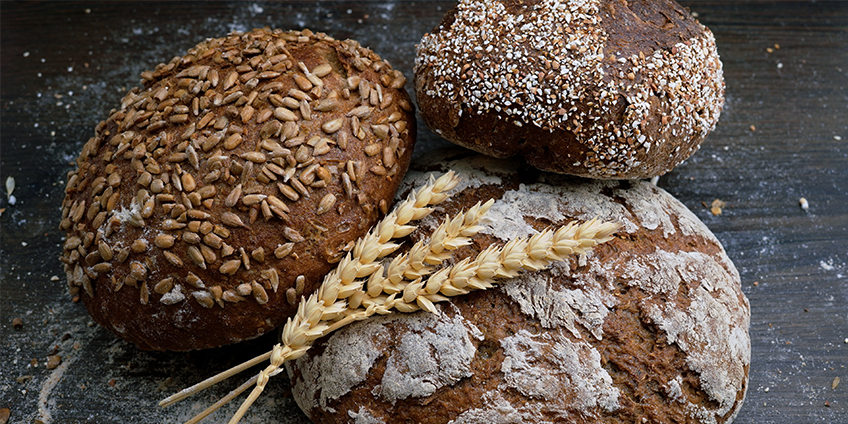There is an abundance of mixed information out there about gluten and whether it causes weight gain or weight loss. What if I were to tell you that it can do both?
Gluten is a family of proteins found in grains such as wheat, rye, barley, and spelt. The two most common proteins found are glutenin and gliadin. These two proteins are stuck together, hence the Latin word “gluten.”
Individuals with celiac disease lack the enzyme to break down gluten. When they ingest gluten the microvilli (finger-like projections in the small intestine responsible for absorption of nutrients) become eroded down to the surface. When this happens, your intestine can no longer absorb nutrients properly which can lead to diarrhea, malabsorption and severe weight loss.
On the other hand, some people with celiac disease gain weight. Over the years, manufacturers have made eating gluten-free much easier. But it comes at a cost as many of these foods are highly processed and have a high glycemic load, raising your blood sugar. Insulin is produced to bring your blood sugar down every time you eat these foods. When this happens day after day, your body starts ignoring insulin’s message to use glucose for fuel and you become insulin-resistant. Instead of using the glucose in the blood for fuel, it starts storing the glucose as fat. This makes weight loss very difficult. Another way people with celiac disease gain weight is by way of leptin-resistance. Leptin is a hormone that tells your brain you are full. If leptin is continuously bound by sugar (found in highly processed food), it becomes resistant just like insulin. Leptin-resistance can lead to overeating and weight gain.
People without celiac disease can gain weight from eating too much gluten. Many of the top experts on nutrition believe that grains are good for most people in moderation. Alessio Fasano, MD from Harvard, has published research that shows “increased intestinal permeability occurs after gliadin exposure (a piece of poorly digested gluten) in all individuals.” When grain is eaten too frequently, it can lead to obesity. Interestingly, the per capita consumption of wheat in the U.S. in 2018 was 132 pounds! Here are several reasons why eating too much gluten can lead to weight gain:
- First, 75% of the starch in the wheat we eat today is amylopectin A. Amylopectin A has a high glycemic index and causes surges in both glucose and insulin after eating. This can lead to insulin resistance and obesity.
- Second, the wheat we eat today is much different than the wheat ingested by our grandparents. It has been genetically modified. For example, the hierloom DNA of Einkorn wheat codes for only a few gluten proteins whereas the DNA of the modified dwarf variety codes for many gluten proteins. This causes increased inflammation and insulin resistance leading to obesity.
- Third, eating wheat will make you crave even more wheat. When wheat is broken down in your gut it forms smaller proteins or exorphins. These proteins cross into your brain and bind to opioid receptors, much like drugs do, which gives you a high and can actually make you addicted. This can lead to intense food cravings and binging.
Many people who switch to a gluten free diet lose weight. To lose weight however, it isn’t enough just to avoid gluten whether you have celiac disease, gluten sensitivity or just want to avoid gluten. Sustained weight loss has more to do with your daily food choices, avoiding highly processed food and getting down to the basics in nutrition.






0 Comments